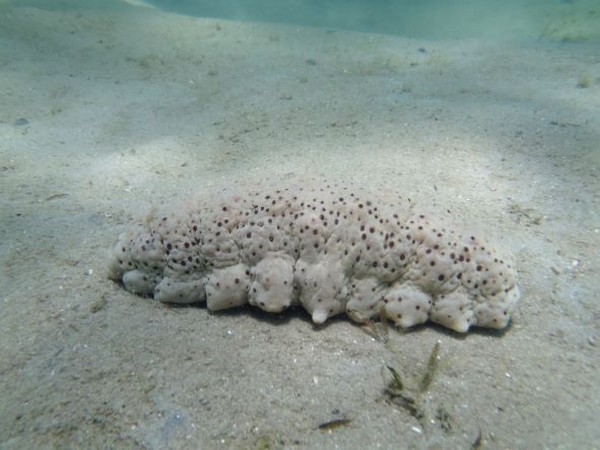Sri Lankan sea cucumber farmers lament that fishing industry is slowly disappearing: Report
In Kiranchi village, Kilinochchi, the traditional fishermen's protest against sea cucumber farms has crossed 100 days. In the northern peninsula, the farming method of caging a specific area in the sea and harvesting sea cucumbers is an unfamiliar experience, according to CSST.

- Country:
- China
China is the largest importer of northern Sri Lankan sea cucumber. Though some sea cucumber farmers are happy to receive the high price, those who rely on fishing for their livelihood are in a very bad situation. They lament that the fishing industry is slowly disappearing, Sri Lanka-based Centre for Strategic Studies- Trincomalee (CSST) reported. In Kiranchi village, Kilinochchi, the traditional fishermen's protest against sea cucumber farms has crossed 100 days. In the northern peninsula, the farming method of caging a specific area in the sea and harvesting sea cucumbers is an unfamiliar experience, according to CSST.
Sea cucumber has been a part of the seafood business for over 50 years. Annalingam Annarasa, President of Jaffna District Fishermen's Co-operative Society, said that Sukanth International Pvt Ltd has been in the business for three generations, we have never opposed this. However, after 2019, we oppose the mushrooming sea cucumber farm projects in Northern Province. "These farms will prevent fish from coming to shore and fish reproduction. Besides, it is not our primary marine industry in the Jaffna peninsula. Sea cucumber harvest is for export only. They are trying to destroy the traditional fishing industry, which has been our livelihood for generations," Annarasa explained.
A.M. Riaz Ahmed, a senior lecturer in the Department of Biological Sciences at the Southeastern University of Sri Lanka, as quoted by CSST, said: "the fears of the fishermen are justified. If large-scale seaweed harvesting is carried out alone, it will affect the food chain of marine resources and sea cucumber eggs and young larvae will become prey for fish and other marine animal." China is investing in the sea cucumber farms in Sri Lanka, that have the capability of boosting exercise performance and have anti-fatigue effects. China wants to facilitate the export of the species from Sri Lanka.
The Chinese joint venture company, Gui Lan (Pvt) Ltd had already established an artificial breeding production facility (hatchery) in Jaffna's coastal village of Ariyalai as far back as 2016 to provide juvenile cucumber stock to support further production, reported Geo-politik. While the climate in Sri Lanka is quite suitable for sea cucumber production, there can be catastrophic consequences for the local marine ecology if large-scale production is undertaken.
There have been reports of protests by the local farmers saying that these aquaculture projects are likely to have an adverse impact on their livelihood, the local marine ecology and the land, reported Geo-politik. (ANI)
(This story has not been edited by Devdiscourse staff and is auto-generated from a syndicated feed.)










